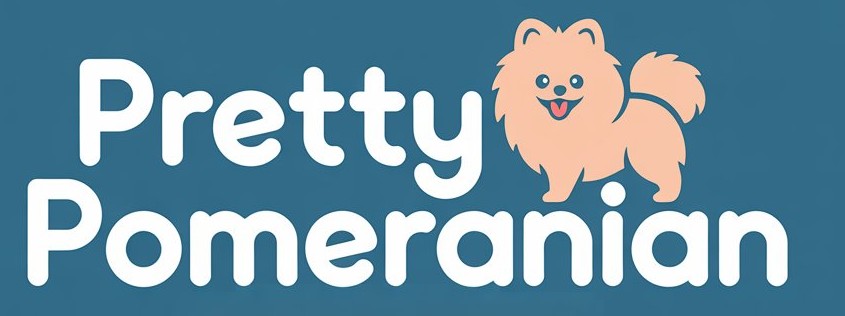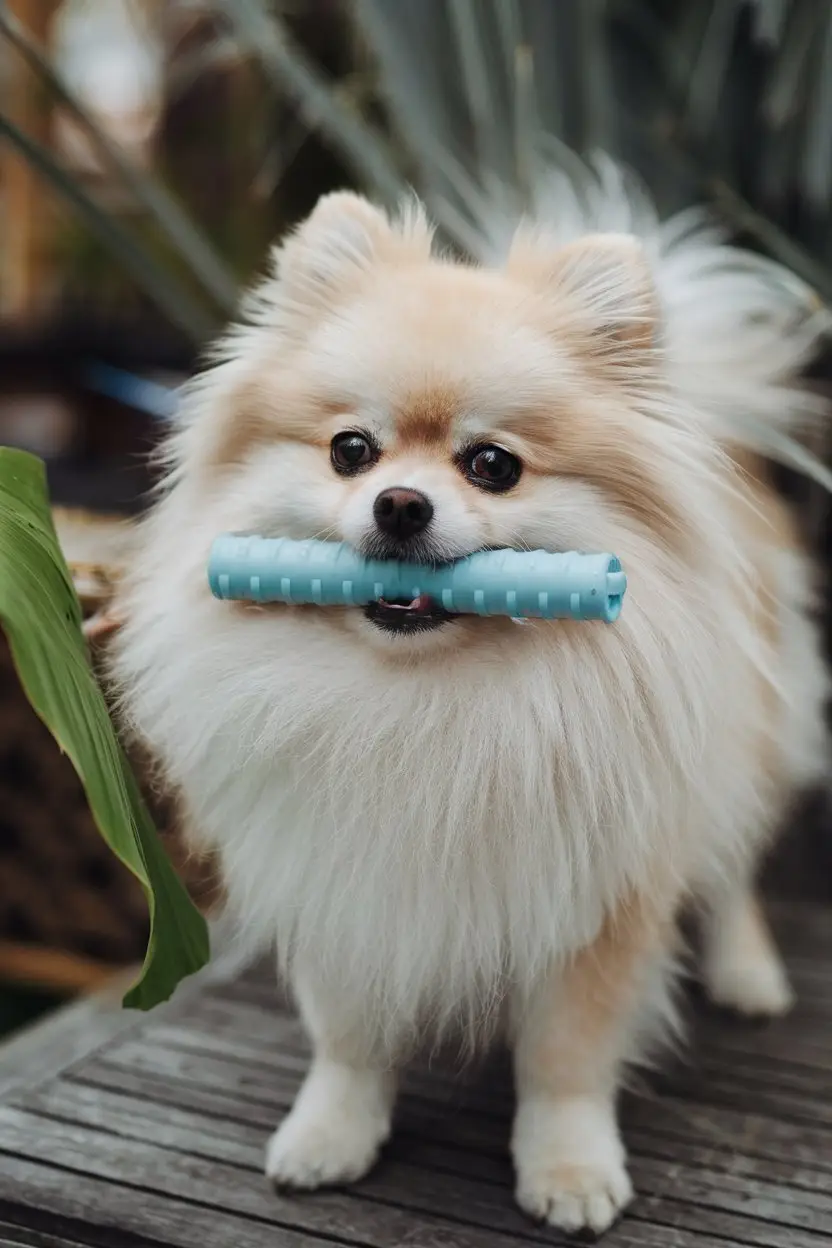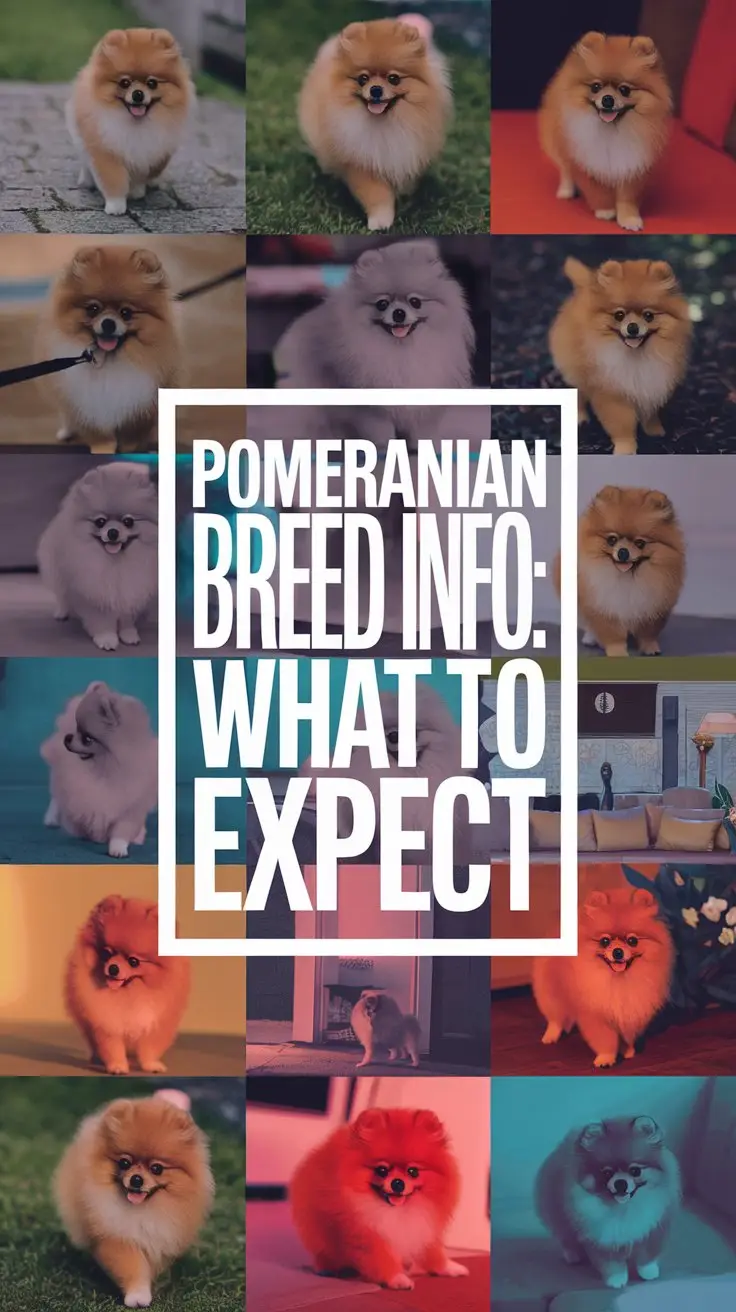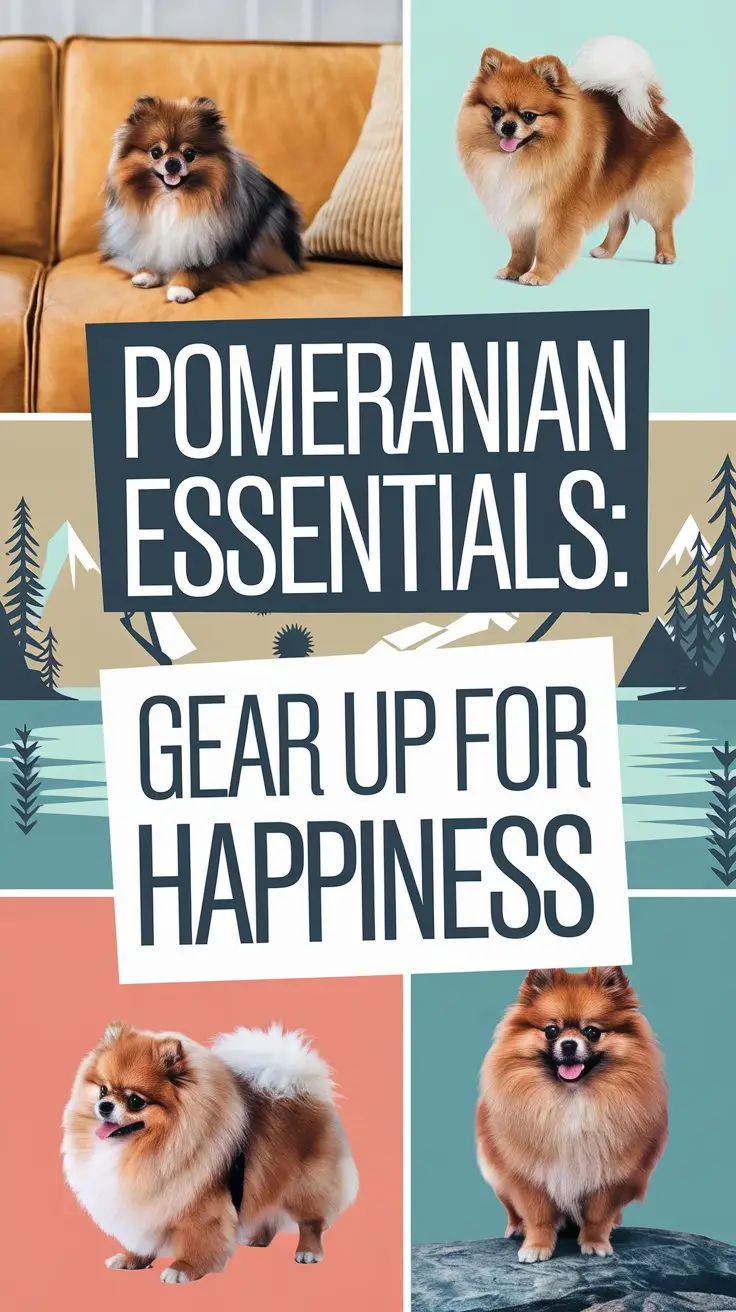Having a Pom is a big deal – these little furballs need lots of your time each day.
You're looking at about 2-3 hours for all their needs, with half an hour just for walks and play.
They're super smart but can be pretty hard-headed, so you'll want to set clear rules and get them used to other pets and people early on, or they might drive you nuts with their barking.
That gorgeous fluffy coat? It needs daily brushing to stay nice, and you'll have to keep an eye out for knee problems and take good care of their teeth.
While they're great for apartment life, these pups can get chilly or overheated easily, so you'll need to make sure their space is just right.
Before you jump into getting a Pom, think hard about whether you can handle all their needs – they're not just cute faces, they need lots of attention and care!
Time and Attention Requirements
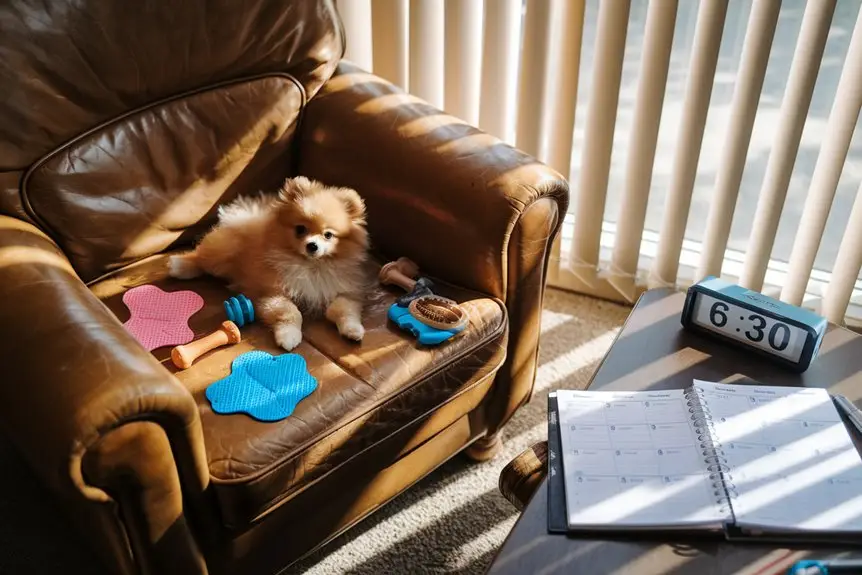
Taking care of a Pom is no joke – these little fluffballs need way more time than most people think! If you're planning to get one, you'll have to set aside quite a few hours every day to keep them happy and healthy. Being super busy or rarely home just won't cut it with these pups.
Your Pom will want daily walks, lots of playtime, and fun activities to keep their mind busy – otherwise, they might start tearing up your stuff out of boredom! That gorgeous fluffy coat isn't going to brush itself, and you'll need to stay on top of teeth cleaning to avoid health problems down the road. These tiny dogs can be pretty hardheaded, so you'll need patience and regular training sessions. If you can't spare 2-3 hours each day for your Pom's needs, you might want to think about getting a different breed or waiting until you have more free time. Positive reinforcement techniques are essential for successfully training these intelligent but sometimes stubborn pets.
Exercise and Activity Needs
Hey, you might be surprised how much energy these little Pomeranians have in their tiny bodies! Even though they're small, they need at least 30 minutes of good exercise every day, plus lots of play time to burn off all that zip and zoom they've got going on. If you're thinking you're getting a chill little lap dog who just wants to hang out, you might want to think again!
Your Pom needs both physical stuff and brain games to stay happy and behave well. Taking them on walks, playing with them, and giving them fun puzzle toys isn't just optional – it's super important to keep them from getting bored and turning your stuff into chew toys. Trust me, if they don't get enough exercise, they'll find their own entertainment – usually by barking their head off or making your furniture their personal chew toy. You'll definitely need to be ready to keep up with an active routine to keep your little fluff ball content and balanced. Make sure to combine exercise with basic command training to develop both physical fitness and good behavior patterns.
Health and Grooming Commitments
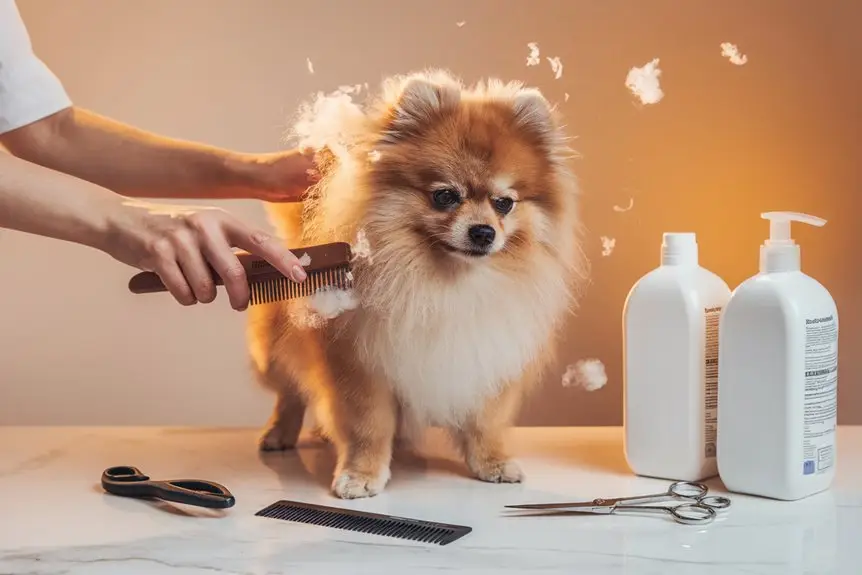
Hey, looking after a Pom's health and grooming isn't a walk in the park – you've got three big things to stay on top of: brushing every day, vet visits, and keeping those teeth clean. That fluffy double coat? Yeah, it needs daily brushing or it'll get all tangled up, and heads up – you'll be finding fur pretty much everywhere in your home and on your stuff. You'll want to carve out some time each day to keep that coat looking good.
When it comes to your Pom's health, you've got to keep your eyes peeled, especially for knee problems (that pesky luxating patella) and tooth issues. Getting them to the vet regularly is a must, and you can't slack off on the tooth care – we're talking brushing at home and getting professional cleanings done. Skip these things and you might end up with some pretty serious health problems down the road. If you're thinking "this sounds like a lot of work," well, maybe a Pom isn't the right fit for you. Your Pom might also develop collapsed trachea, which causes breathing problems and a distinctive honking cough that requires careful monitoring.
Living Space Considerations
Picking a safe place to live is super important when you get a Pomeranian. These little fluffballs are pretty nosy and full of energy, so they'll need a yard with good fencing – otherwise, they might squeeze through tiny spaces or dig their way to freedom! You'll want to check your space carefully to spot any sneaky escape routes or dangerous spots.
Even though Poms do fine in apartments because they're tiny, you still need to set up some safe zones in your home. These little rascals can get into trouble when nobody's watching, so you'll want to make everything "Pom-proof" in the areas where they hang out. Baby gates are a good idea to keep them away from places they shouldn't be, and make sure to put away anything dangerous like cleaning stuff, wires, or small things they might try to eat. Regular outdoor exercise time helps manage their high energy levels and reduces chaotic behavior indoors.
Training and Socialization
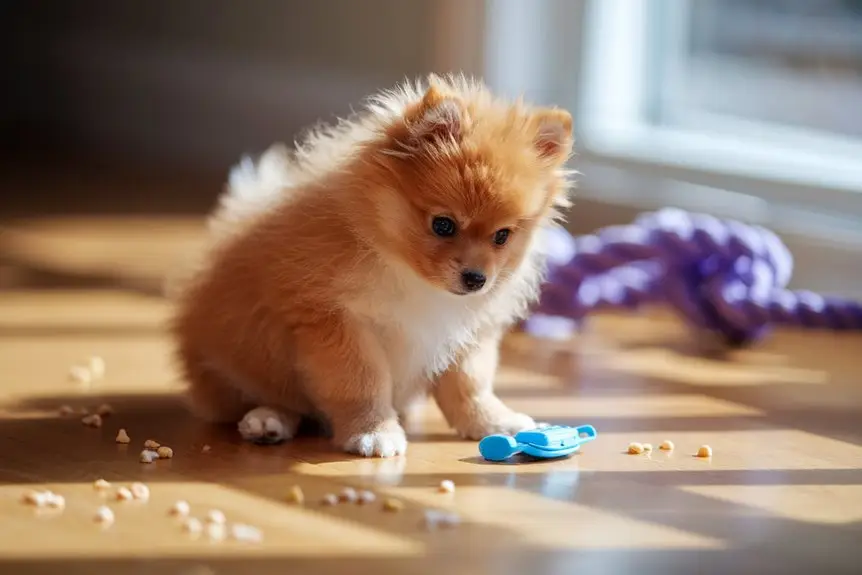
Helping your Pom learn good habits takes regular work and patience, but don't worry – it can actually be fun! These smart little pups can be a bit hardheaded, so you'll want to set clear rules from the start to avoid any behavior problems down the road. Just keep your training positive and stick to your rules.
Getting your Pom used to different people, other animals, and new places when they're young is super important. The more they experience early on, the more relaxed and friendly they'll be as they grow up. If you skip this part, your pup might get scared or defensive around new things. Training should be quick sessions – like 5-10 minutes – but try to do them often. Always praise your pup when they do something right! Trust me, a Pom that knows their manners is amazing to have around, but one without training can be quite a handful. Consider using interactive toys during training sessions to keep your Pom mentally stimulated and engaged in the learning process.
Temperature and Environmental Factors
Taking care of your Pom means making sure they're comfy in their space, which is super important for keeping them happy. Since they have that fluffy double coat, these little guys really don't do well in hot weather, so you've got to be extra careful when it's warm outside. Never leave your Pom hanging around outdoors on hot days, and make sure they can always get to fresh water and spots with shade.
Keep an eye on your furry friend for any signs they're getting too hot – stuff like heavy panting, acting super tired, or drooling more than usual. You'll want to keep your house at a nice temperature and try not to do too much outside when the sun's really beating down. The best times for walks are early in the morning or after the sun starts setting. If you happen to live somewhere that's always warm, you'll need to be really on top of watching the temperature for your pup's sake. Your Pom's seasonal coat transitions during spring and fall can affect how well they regulate their body temperature, so extra attention is needed during these times.
Behavioral Traits and Challenges

Having a Pom means dealing with three major personality quirks: they're stubborn, smart, and super strong-willed. You'll need to stay on top of training and be firm, or they might start acting up with too much barking or getting snippy with others.
These little furballs need plenty of brain games and time with other pets and people. Sure, they pick things up fast, but they can also get pretty sneaky if you're not setting clear rules. Getting started with training early is super important, or they might try to run the show. And trust me, they're clever enough to push your buttons and test who's really in charge.
If you're thinking about getting a Pom, just know they're not couch potatoes. You'll need to put in the work with regular training, and they won't put up with wishy-washy commands or mixed signals. These tiny dogs pack big personalities, so you've got to be ready to match their energy and commitment level. Many Pomeranians can develop separation anxiety issues if they don't receive proper training and socialization from an early age.
Neighborhood and Noise Impact
Living with a Pom means dealing with their love of barking – it's just part of who they are! These little fluffballs aren't exactly quiet roommates, which can be tricky if you're in an apartment or have neighbors close by. You'll want to think about how your neighbors feel about dog noises and what the local rules say about it.
Living in an apartment? Better check those rules and pet policies first. Even if you've got your own house, your Pom might get pretty excited about everything from delivery people to squirrels, and let everyone know about it! Sure, you can train them to be a bit quieter, but let's be real – these pups were born to be tiny watchdogs, and they take their job seriously. Some barking is just going to happen, no matter what you do. Early socialization training can help minimize excessive barking behaviors and prevent potential aggression issues.
Frequently Asked Questions
How Long Do Pomeranians Typically Live?
Your Pom can stick around for about 12 to 16 years if you take good care of them. These little fluffballs tend to live pretty long lives, but how many years you get with them really comes down to what they eat, how much they move around, and making sure they see the vet regularly.
Can Pomeranians Safely Live With Cats in the Same Household?
Your Pom and kitty can totally be buddies – no joke! These fluffy little pups usually get along great with cats once they get used to each other. Just make sure you keep an eye on them when they first meet, and start introducing them when they're young if possible. Before you know it, they might end up snuggling and playing together like old pals!
At What Age Do Pomeranian Puppies Start Showing Their Adult Coat?
You'll see your Pom's adult fur begin to come in when they're about 4-6 months old. Their fluffy double coat takes over and fully replaces that baby-soft puppy fur somewhere between 12-15 months. It's pretty amazing to watch their coat change during this time!
Are Pomeranians Good Therapy or Emotional Support Dogs?
Believe it or not, these tiny pups can be amazing therapy and emotional support dogs! They might be small, but Poms have a big heart and are super smart when it comes to understanding how you're feeling. Their loving personality means they're right there by your side when you need a furry friend to cheer you up or just hang out with.
Do Pomeranians Have Different Personality Traits Based on Their Coat Color?
Hey, here's something interesting – your Pom's fur color has nothing to do with how they act! These little fluffballs get their personality from their DNA, how they're raised, and who they hang out with. Whether your furry friend is rocking a black, white, or orange coat, they'll grow up to be their own unique self with their own special quirks.
